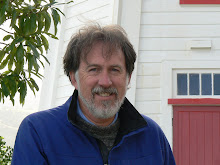
The late great Tip O’Neill, the former speaker of the US House of Representatives from the US state of Massachusetts once famously observed that "all politics is local". Confirmation of that pearl of wisdom was provided once again last week during my locum stint in the small town of Takaka, which is idyllically situated on Golden Bay in the northwest corner of the South Island of New Zealand. Nestled between Able Tasman National Park and Kahurangi National Park (home of the famous Heaphy Track) and isolated from the nearest city of Nelson by a long tortuously twisting two-lane road reputed to make for the worst driving New Zealand, Takaka has developed a superb and somewhat unique model for health care delivery to its community. The Golden Bay way of doing things has also seen the winds of change that have affected numerous practices and communities throughout New Zealand. Specifically, with the establishment of district health boards (DHBs) and primary health organizations (PHOs)discussed in one of my previous posts, there has been a trend towards standardization, centralization, and in the eyes of not a few, loss of local and professional control. To complicate things further, these two entities, the DHBs and the PHOs are thought by some to be engaged in a power struggle to define their roles and dominance, while the oversight boards of both tend to consist of political appointees, who are often felt not to be entirely dedicated to transparency or democratically responsive or accountable to those their decisions most immediately affect.
One week before I arrived in Takaka, a tentative agreement was reached between various stakeholders in the region, community, and the physicians that will change the delivery of care in this small somewhat isolated place. Specifically, the doctors of the Golden Bay Medical Centre (GBMC ) became employees of Nelson Bays Primary Health, the local PHO. But there was also dissent in the practice and ongoing concerns about professional control, community input, and transparency of management have continued to be a source of controversy and concern.
At issue is the attempt to consolidate the freestanding medical practice, ambulance services, local senior center, and small community-based chronic care hospital. A decision has been reached to move ahead with construction of an integrated health facility at the site of the old hospital 2 km out of town that would encompass all of the services. Unfortunately, this will involve relocating the senior rest home and moving the medical practice from its present downtown site. The primary driver of the choice of location is that it represents the least expensive real estate option for the DHB.
These decisions were reached by a group called the Interim Management Group (IMG)which is made up of representatives from the Nelson Marlborough District Health Board, the trust in charge of the rest home, the GBMC community trust and professional members of the Golden Bay Medical Center. In seven days there will be a community meeting in Takaka presenting the final proposals to the community. There is also another community meeting, organized by a group of dissident citizens, scheduled for April 20. High on the list of concerns is loss of community control and transparency of the process.
In response to those in the US who think that a single-payer plan such as New Zealand’s represents monolithic socialism I would only point to the community engagement so evident in Takaka. What I saw there goes to the very heart of participatory democracy. There is a real struggle afoot to try to reconcile uniquely tailored local solutions with the greater integration, standardization and economies of scale that large organizations can offer.
In a perfect world every community would be able to strike a delicate balance between these countervailing forces and come to a consensus about the best way to proceed. Despite some of the heated opinions and passionate arguments I heard from various sides of the issue, I’m actually quite impressed that the commitment of the community will translate into further expansion and enhancement of the high-quality institutions that already exist.
The integration project’s IMG in their public summary that appeared in the April 16, 2010 Golden Bay Weekly, states that they are happy that the proposal meets the future health “needs’ of the Bay. They also believe that it meets the “wants’ as well. Or as three of the physicians from the GBMC said in their public announcement of their change in employer to the Nelson Bays Primary Health (PHO), “We anticipate that this will be a challenging journey but feel it’s an excellent opportunity to further the provision of health care in our community into the future”.
After the dust has settled I’m confident that Golden Bay will continue to build on its tradition of excellence in healthcare. I hope the community can also look back with pride on its active participation in the process and on the degree to which it demonstrates that, quite simply, they care for one another. Tip O’Neill would be proud of this place.


No comments:
Post a Comment